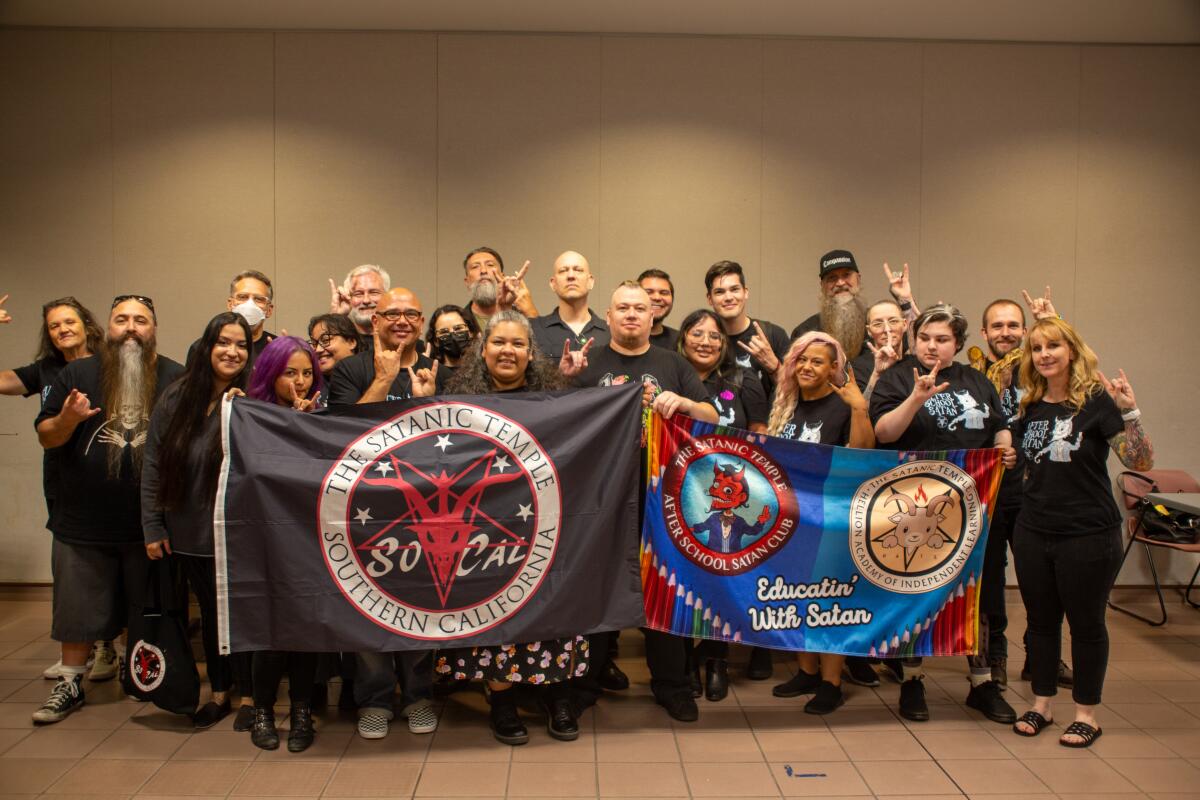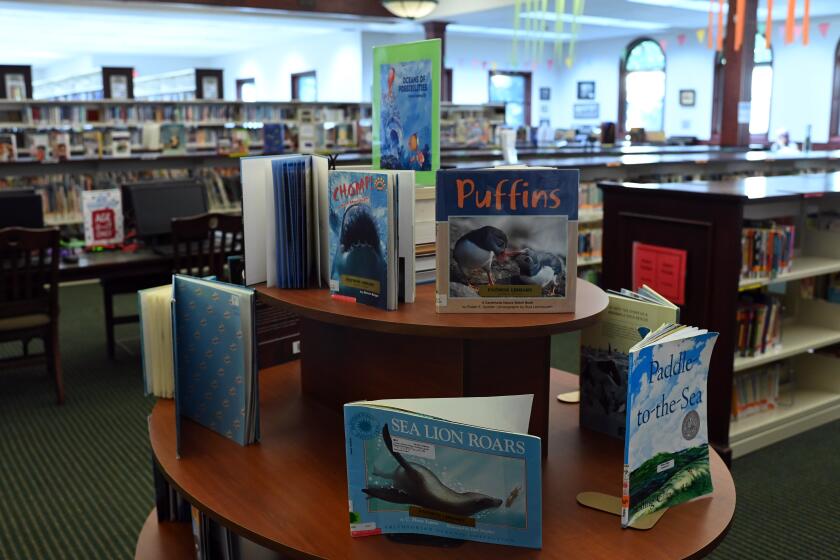After School Satan Club is coming to Orange County. It’s not what you think, organizers say

- Share via
Usually, word of a new after-school program giving elementary school students a chance to explore art, science and technology would hardly make a ripple.
But when it comes to a new club preparing to launch in San Clemente, supporters and critics alike seem to agree: the devil’s in the details.
Next month, Truman Benedict Elementary School will play host to the After School Satan Club — only the second such group organized by the Satanic Temple in California.
The club, which will have its first meeting on Feb. 12, is being promoted with a brochure that features a cartoon devil and a section titled, “Educatin’ with Satan.”
Lilith Starr, a devil’s advocate in every sense, is in a rush to get her After School Satan Club started.
Representatives from the Satanic Temple — which doesn’t actually practice devil worship, despite its name — say a Truman Benedict parent asked them to bring the program to campus after their child was handed a permission slip to a Christian-focused after-school club, which did not align with their values.
“I look at us like vampires: We only go where we’re invited to,” said June Everett, the After School Satan Club’s campaign director.
The Satanic Temple applied for a permit from the Capistrano Unified School District on Jan. 8 to use the school’s facilities, according to a district statement. Under state law, the district can allow non-profit organizations, including religiously affiliated organizations that are recognized by the Internal Revenue Service, to apply for those permits. The Satanic Temple was granted tax-exempt status by the IRS in 2019.
The district does not sponsor or endorse any of the after-school programs that take place on its campuses, according to spokesperson Ryan Burris. But that hasn’t stopped some community members from questioning the decision to allow the club on the Truman Benedict campus.
Conservatives vilify school librarians as “groomers and pedophiles” for stocking LGBTQ and racially themed books. “We have been cursed,” said one librarian.
As one district mother put it during a Jan. 17 school board meeting: “Satan is a universal symbol for evil. If I have to explain any further why having a satanic club on a campus with 5- and 6-year-olds is wrong, there are bigger issues here.”
Another woman asked if the district had performed background checks on the volunteers who will be running the club.
“Where do you go to verify Satan?” she asked the board.
The Satanic Temple encountered similar skepticism in November, when the first After School Satan Club in California met in the city of Tehachapi in Kern County. Organizers said they were met with some pushback from the community, but also found residents willing to accept the program.
Organizers stressed that they do not plan to recruit students or parents who do not want to be affiliated with their club. The Satanic Temple does not view Satan as a deity or otherwise supernatural figure, but instead as a symbol against societal norms, according to the organization’s teachings.
The Satanic Temple is selective when it comes to potential sites for its program, focusing on school districts that already have existing faith-based clubs. But organizers say they are not focusing primarily on Christian-based programs.
“We are offering an alternative,” Everett said. “And ultimately, we believe in the separation of church and state, but we also believe in religious pluralism and religious freedom.”
Three decades after a national publication probed the city’s ills, we gathered a panel of Angelenos to ponder the age-old question: Is Los Angeles hell on earth?
The program at Truman Benedict Elementary will be open to children ages 5 to 12, including those from outside the school district, with a signed permission slip from their parents or guardians.
At the after-school club, children can expect to make friendship bracelets, paint kindness rocks and learn about STEM activities from vetted volunteers, according to the program description.
Zora Gram, a volunteer with the club, expects puzzles, books and games will be involved when it meets for the first time. But she’s also willing to let the children lead the way.
“I’m really excited to meet the kids. I think that part of the program is kind of understanding the kids and seeing what they’re interested in and kind of tailoring the program around that,” Gram said.
All the latest on Orange County from Orange County.
Get our free TimesOC newsletter.
You may occasionally receive promotional content from the Daily Pilot.







